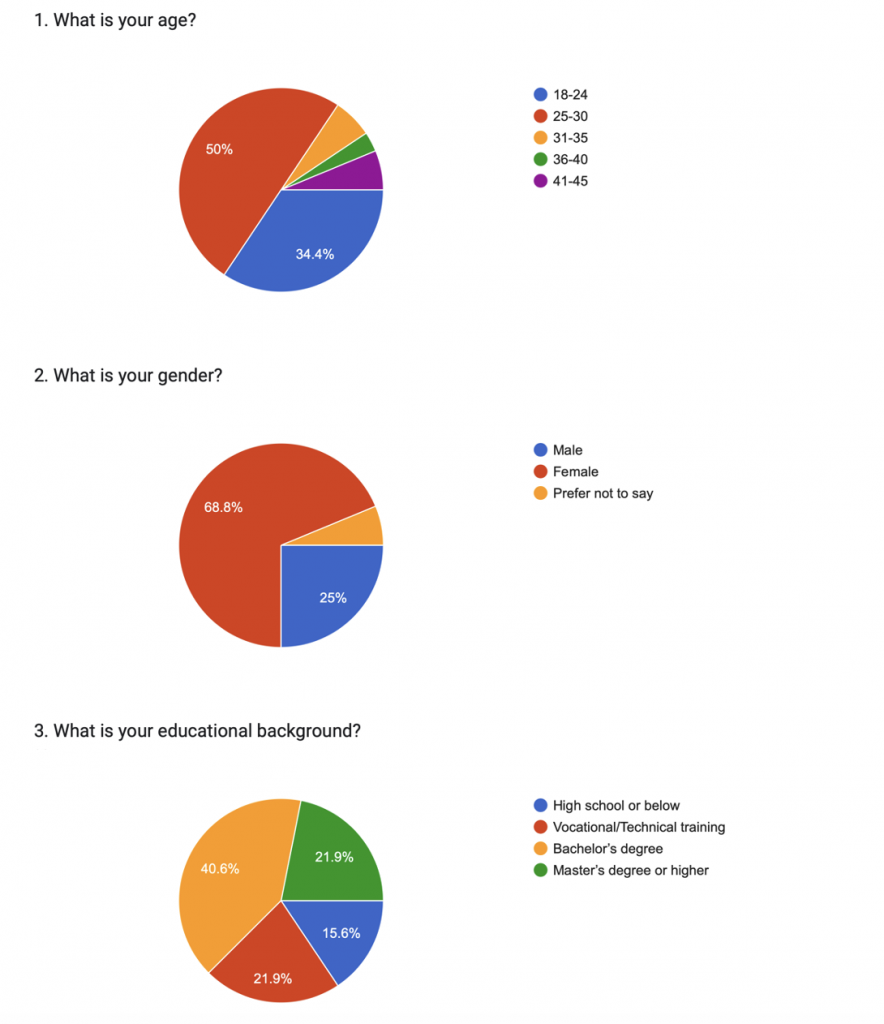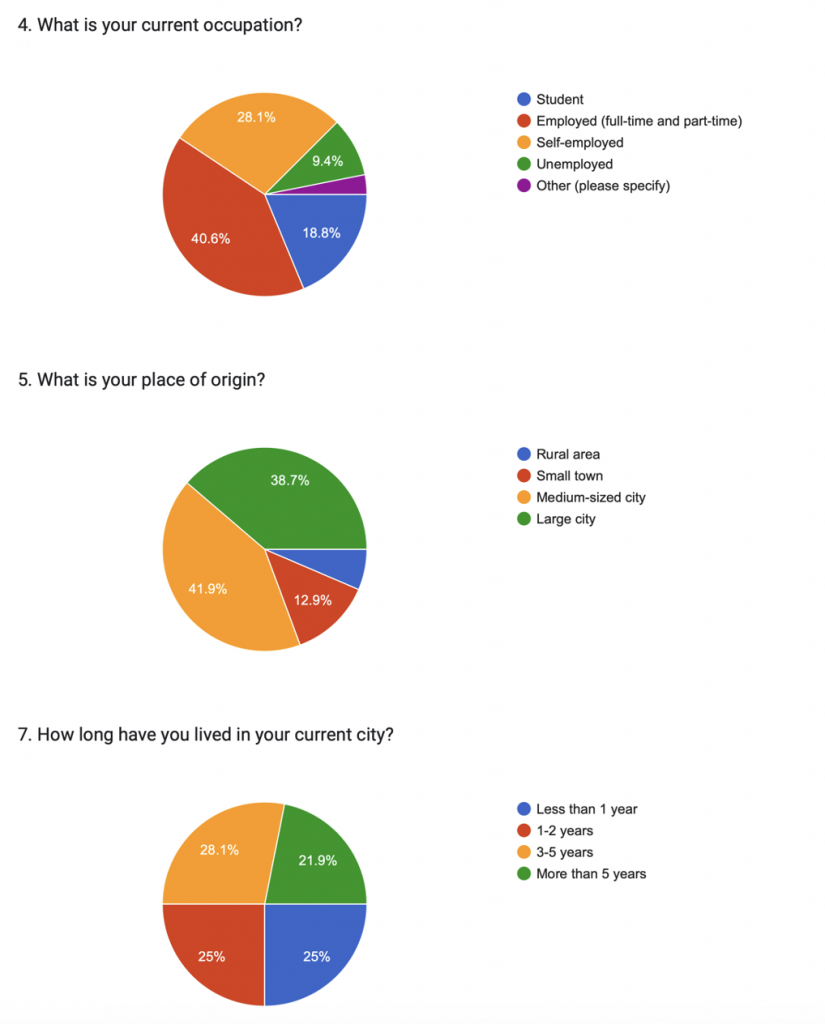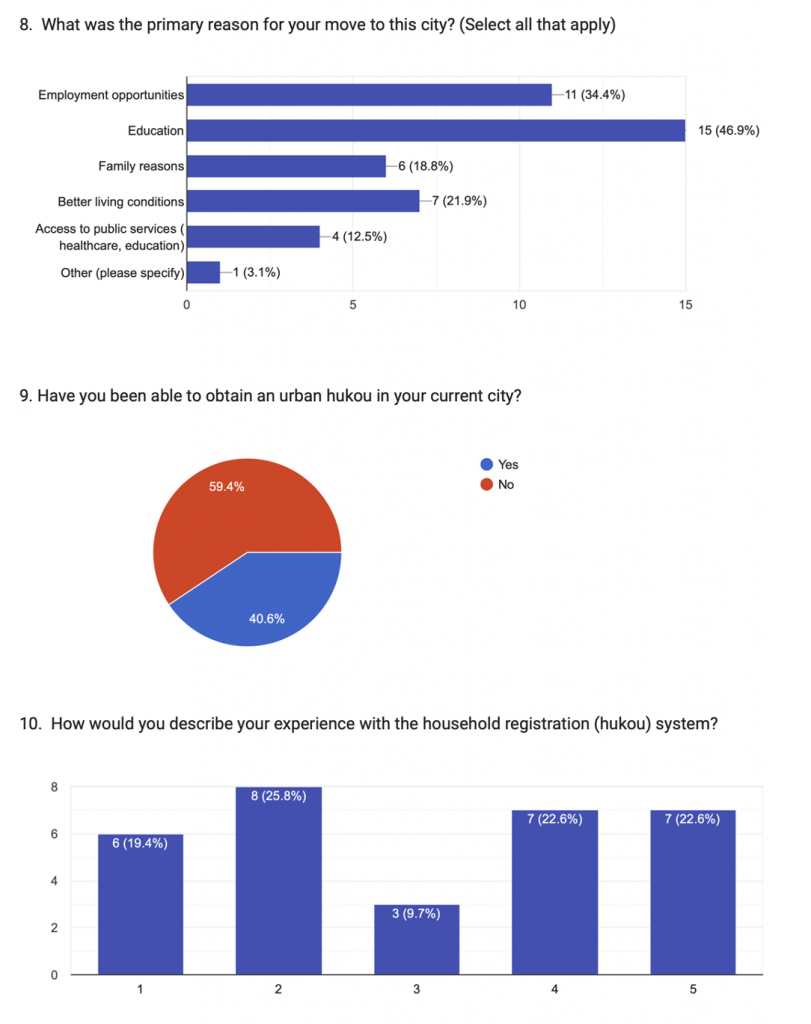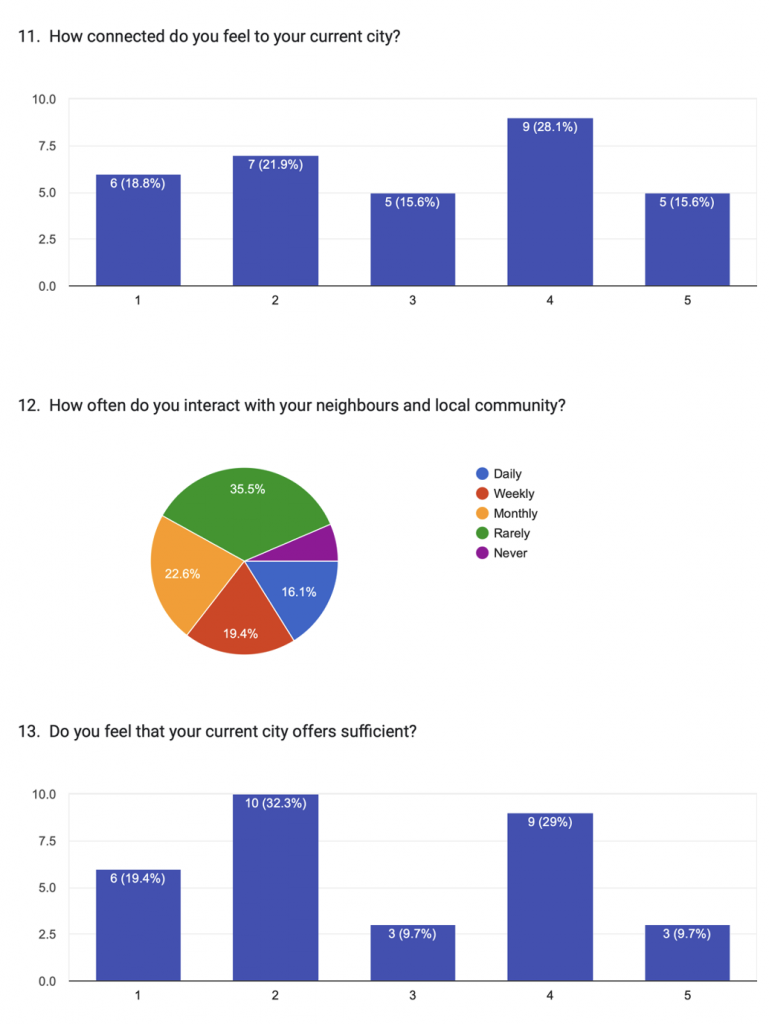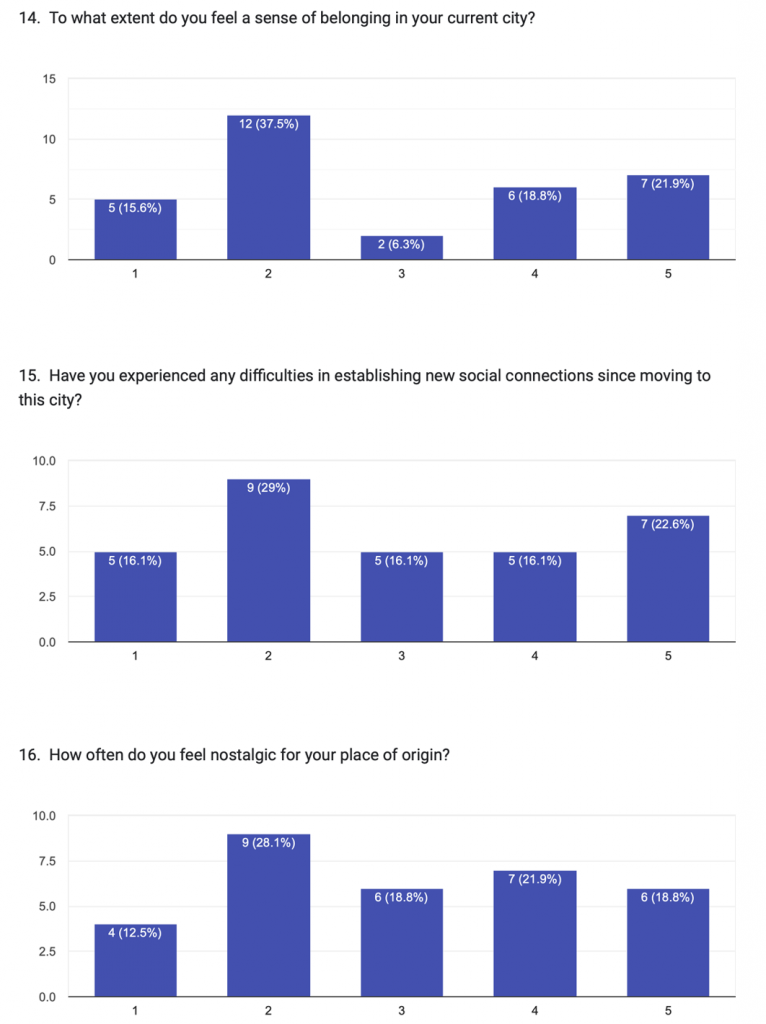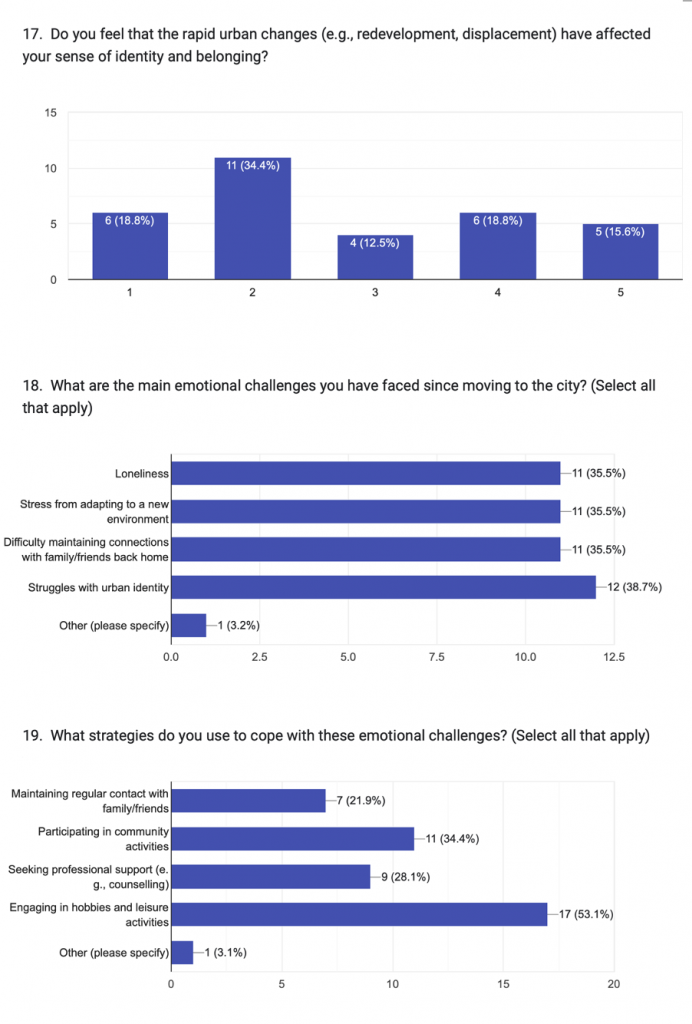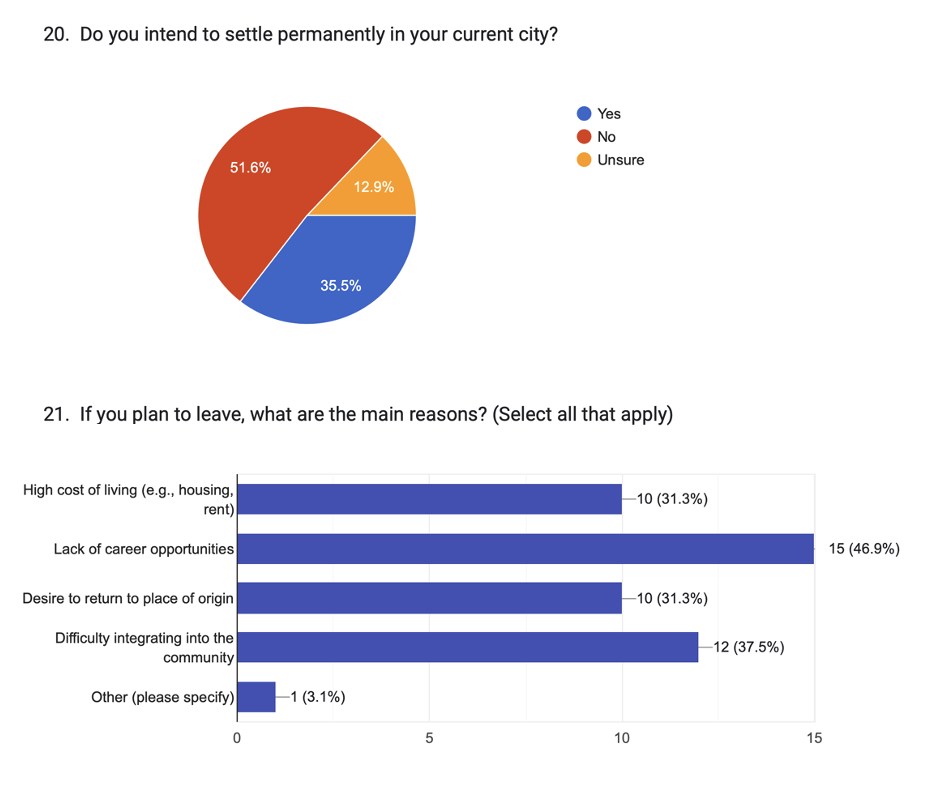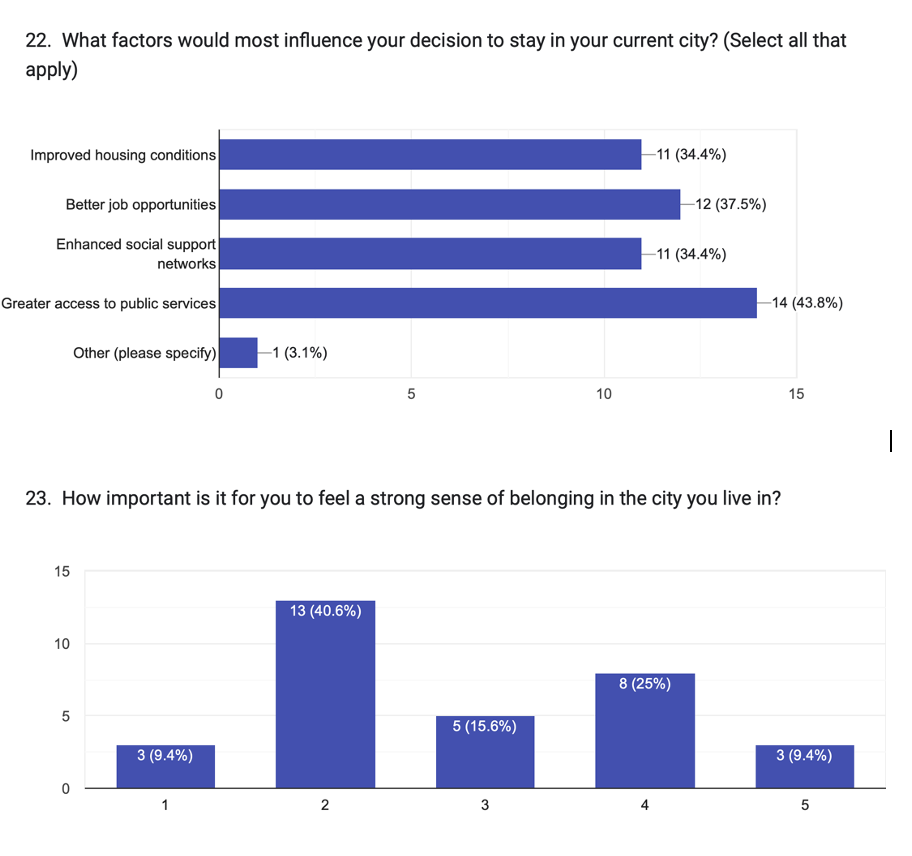At the first week of my independent research, I decided to start my work my work from a small-scale survey to quantitatively understand Chinese people’s attitudes towards the migration within China.
Link of questionnaire:
https://forms.gle/fHXTak9iGDRuhnx96
Analysis of Survey Data on the Emotional Challenges of Young Migrants in Urban China
Demographic Overview
The majority of participants (50%) were aged between 25-30 years, with 34.4% aged 18-24, indicating that the respondents are primarily young adults. In terms of gender, 68.8% identified as female, while 25% were male, with a small percentage (6.3%) preferring not to disclose their gender.
Educational Background and Occupation
A significant portion of respondents have attained higher education, with 40.6% holding a bachelor’s degree and 21.9% having a master’s degree or higher. This indicates a relatively educated group, which is also reflected in their occupations. The majority (40.6%) are employed either full-time, while 28.1% are self-employed, and 18.8% are students. This distribution suggests that the respondents are at various stages of their professional lives, from students to established professionals.
Place of Origin and Current Residence
The respondents primarily hail from medium-sized cities (41.9%) and large cities (38.7%), with a smaller percentage coming from rural areas (6.5%) and small towns (12.9%). The majority have lived in their current city for a substantial period, with 25% residing there for 3-5 years and 25% for more than five years. This suggests that these young migrants have had significant exposure to urban life.
Primary Reasons for Migration
When asked about the primary reasons for their migration, respondents indicated a variety of motivations. The most common were employment opportunities (34.4%) and education (46.9%), followed by the pursuit of better living conditions (21.9%) and access to public services (12.5%). These findings highlight the economic and educational drivers behind migration, with many seeking improved quality of life and career prospects in urban areas.
Experience with the Hukou System
The household registration (hukou) system remains a significant barrier for many respondents, with 59.4% reporting that they have not been able to obtain an urban hukou in their current city. This reflects the ongoing challenges young migrants face in securing formal residency status, which can impact their access to social services and benefits. The respondents’ experiences with the hukou system were varied, with 25.8% rating it as difficult (2 out of 5), while others had more neutral or less challenging experiences.
Sense of Belonging and Community Interaction
The survey results indicate a mixed sense of belonging among the respondents. While 28.1% feel somewhat connected to their current city (4 out of 5), a significant portion (37.5%) reported a low sense of belonging (1 or 2 out of 5). This suggests that many young migrants struggle to establish a strong connection to their urban environment. Additionally, community interaction appears limited, with 35.5% interacting with their neighbours and local community on a weekly basis, but a notable percentage (19.4%) reported rare interactions.
Emotional Challenges
The emotional challenges faced by young migrants are diverse but significant. The most commonly reported challenges include stress from adapting to a new environment (35.5%), loneliness (35.5%), and difficulties in maintaining connections with family and friends back home (38.7%). Struggles with urban identity were also noted by 38.7% of respondents. These findings underscore the psychological and social difficulties that accompany migration, particularly in navigating the complexities of urban life.
Intentions to Settle and Factors Influencing Decisions
The future intentions of young migrants regarding settlement in their current city are uncertain. While 35.5% are unsure about settling permanently, 51.6% do not intend to stay, primarily due to factors such as the high cost of living (31.3%), lack of career opportunities (46.9%), and difficulty integrating into the community (37.5%). These challenges indicate that despite the opportunities cities offer, significant barriers remain that deter long-term settlement.
When asked about factors that would influence their decision to stay, respondents highlighted the importance of better job opportunities (37.5%), improved housing conditions (34.4%), and enhanced social support networks (34.4%). This suggests that while economic factors are crucial, social and community integration also play a vital role in the decision-making process.
Importance of Belonging
Finally, the survey reveals that a strong sense of belonging is important for the majority of respondents, with 40.6% rating it as a 2 out of 5, indicating that while it is significant, many do not currently feel it. This finding suggests that efforts to improve the social and emotional integration of young migrants in urban areas could have a substantial impact on their well-being and decisions to settle long-term.
Conclusion
The survey data presents a comprehensive view of the emotional challenges faced by young migrants in urban China. While these migrants are drawn to cities for opportunities and a better quality of life, they often encounter significant emotional and social challenges, including difficulties with the hukou system, a lack of belonging, and limited social interactions. Addressing these issues through improved social support, community engagement, and policies that facilitate better integration could enhance the urban experience for young migrants and encourage long-term settlement.
Although the sample size of this questionnaire is small and does not allow for an accurate understanding of the specific emotional challenges faced by China’s younger generation in urban migration, this questionnaire provides direction for the design of my upcoming interview questions.
Screeenshots of questionnaire results:
